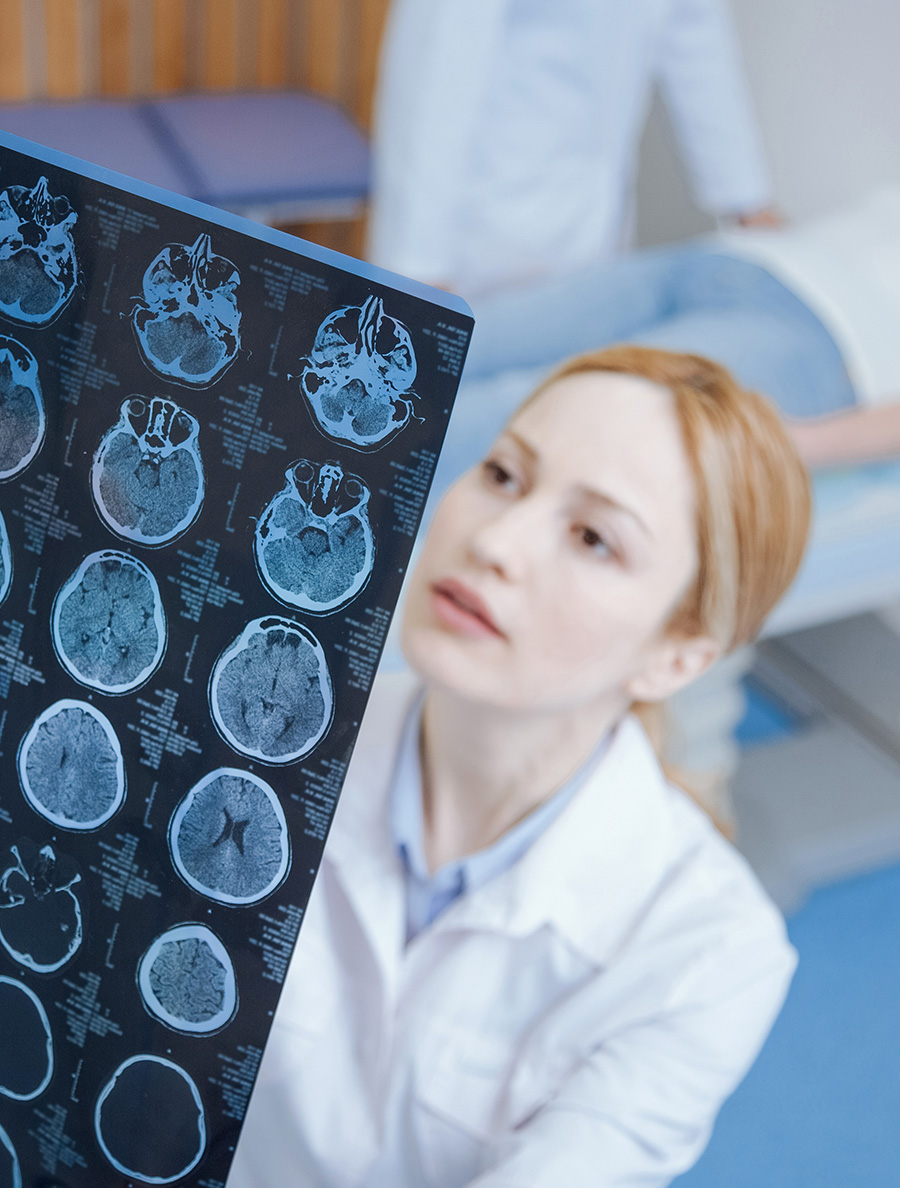About
Memory difficulties and cognitive decline are common side effects of aging, brain injury, chronic stress, and substance abuse. However, just because they’re common doesn’t mean they’re not preventable and reversible. Outside of memory problems, cognitive decline often includes issues with language, thinking, judgment, and reaction times. More severe cases can be accompanied by delusions, time lapses, personality changes, and mood disturbances. These symptoms are likely related to changes observed in the brains of aging individuals and folks with other clinical conditions.Lorem ipsum dolor sit amet, consectetur adipiscing elit. Ut elit tellus, luctus nec ullamcorper mattis, pulvinar dapibus leo.
How It Affects The Brain
As we age, our brain’s overall power is reduced, and the brain’s idle speed slows down. In other words, we see an increase in slower brainwaves like delta and theta and a decrease in faster waves like alpha and beta. Reduced amplitude and coherence of faster brainwaves can damage important cortical links, making many tasks more difficult.
The brain regions and processes related to memory are especially affected by aging and other conditions. The two main kinds of memory are short-term and long-term. Short-term memory is responsible for temporarily storing information and determining if it is necessary to hang onto it for the future. If the information is important enough, it is consolidated into our long-term memory, the brain’s main system for storing and retrieving information.
As we age, the amount of time our short-term memory can store information becomes shorter and shorter. We also struggle to move information to long-term memory, meaning it becomes increasingly difficult to remember things. Like facts and events, explicit memories are most affected by aging and related conditions. EEGs of individuals with memory issues and cognitive decline show brainwave alterations in specific brain regions, such as the prefrontal cortex, temporal lobes, and the hippocampus.
How We Can Help
The first step of any treatment package is a comprehensive Neuropsychological Assessment that includes QEEG brain mapping, LORETA 3D neuroimaging, various testing, and a thorough discussion of symptoms and goals. This allows us to assess for the brain patterns most commonly associated with memory loss and cognitive decline. Treatment will include the goals of enhancing specific cognitive abilities.
Both neurofeedback and neuromodulation can be used to restore healthy brain wave activity, boost power, and improve communication across the brain.
Heart Rate Variability Training and Mindfulness Training can help you gain more control over your autonomic nervous system. They allow you to improve your focus on the here-and-now and modulate physiological responses like breathing, heart rate, body temperature, and muscle tension.
Whichever services you choose to engage with, we will work collaboratively with you to address your brain-body wellness from an integrative lens so you can be the best version of you!
Benefits
Improved Attention and Focus
One of the primary benefits of brainwave training is its ability to enhance focus and attention. By increasing beta waves (which are associated with concentration), neurofeedback training helps individuals maintain sustained attention during tasks. Whether for work, studying, or daily activities, individuals can train their brains to improve mental clarity and reduce distractibility.
Boosted Memory and Learning
Neurofeedback training can also help improve both short-term and long-term memory. By promoting balanced brainwave patterns, particularly through increased alpha waves (which help with relaxation and processing), neurofeedback allows the brain to function more effectively in memory retention. With regular training, individuals may notice improved ability to remember information, learn new skills, and recall details when needed.
Enhanced Problem-Solving and Decision-Making
Higher-frequency brainwaves are associated with cognitive processing and problem-solving. Brainwave training that targets gamma wave activity can help enhance creative thinking, analytical reasoning, and decision-making skills. Individuals who engage in brainwave training may find themselves approaching problems with more clarity and finding solutions more effectively.
Reduced Mental Fatigue and Stress
Chronic mental fatigue and stress can hinder cognitive performance by disrupting brainwave activity. Brainwave training can help reduce the effects of stress by promoting relaxation through alpha and theta waves. This calming effect allows the brain to recover from mental fatigue, thereby improving cognitive performance over time.
The Long-Term Impact of Brainwave Training on Cognitive Health
One of the most remarkable aspects of brainwave training is that its benefits extend beyond just short-term performance. With consistent training, the brain can achieve long-lasting cognitive enhancements. As the brain learns to regulate its activity, individuals often experience increased mental resilience, greater emotional balance, and better overall brain health. In the long run, this can protect against age-related cognitive decline and mental health issues like anxiety and depression.
What the Research Says
Dozens of participants aged 60 years and older were split into two groups, both of which completed neuropsychological testing. Half of the participants were treated using neurofeedback training with a motor imagery-based brain-computer interface, while the other half did not receive NFT. Significant changes were observed in the EEGs of the neurofeedback training participants. These participants also exhibited statistically significant improvements in the following cognitive functions: visuospatial, oral language, memory, and intellectual. These results suggest that neurotherapy could be an effective tool for helping individuals manage age-related cognitive decline.
In a review of 250 cases of individuals treated using LORETA Z-Score neurofeedback, patterns related to cognitive decline and dementia were identified. 71% of patients with static cognitive dysfunction demonstrated significant improvement on cognitive testing and improvement of QEEG abnormalities after doing neurofeedback training. These results indicate that LORETA Z-Score NFT could be a powerful tool for enhancing cognitive performance.
References:
Gomez-Pilar J, Corralejo R, Nicolas-Alonso LF, Álvarez D, Hornero R. (2016). Neurofeedback training with a motor imagery-based BCI: neurocognitive improvements and EEG changes in the elderly. Medical & Biological Engineering & Computing, 54(11):1655-1666.
Koberda, J. L. (2014). Z-score LORETA neurofeedback as a potential therapy in cognitive dysfunction and dementia. Journal of Psychology & Clinical Psychiatry, 1(6).
Ready to Take the First Step?
Discover the clarity and confidence that comes from understanding your condition. Schedule a consultation today—and let’s start building a path toward healing, growth, and potential.
Call us at 512-347-8100
Email admin@peakinstitute.com

